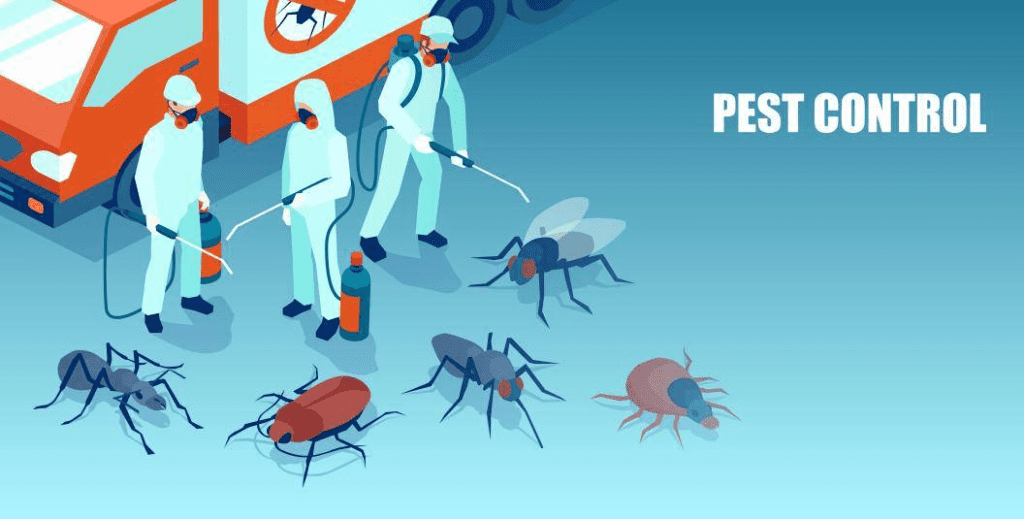As a gardener expert and a well-known journalist for a large media outlet, I often get asked the question, “Does pest control really work?” The answer, my dear readers, is not a simple yes or no.

There are many factors to consider when it comes to pest control and its effectiveness.
The reason why we are creating this content is to help people like you, who may be struggling with pest control issues in your garden or home.
We understand the frustration and stress that come with dealing with pests, and we want to provide you with accurate information and helpful tips to tackle the problem.
So, let’s dive into the topic of pest control and see what works and what doesn’t.
Key Takeaways
- There are different types of pest control, including chemical, natural, and biological pest control.
- The effectiveness of pest control depends on the type of pest control used, the severity of the infestation, and the correct application of the pest control.
- To effectively control pests, it’s important to identify the pest, choose the right type of pest control, read the labels when using chemical pesticides, use integrated pest management (IPM), and implement preventative measures.
- IPM is an approach that involves using multiple pest control methods to control pests and prevent future infestations.
- Preventative measures, such as keeping a clean and clutter-free environment, sealing entry points, and using screens on windows and doors, can help to reduce the risk of pest infestations.
Types of Pest Control
Before we discuss the effectiveness of pest control, it’s important to understand the different types of pest control available.
- Chemical Pest Control This is the most common type of pest control used in homes and gardens. Chemical pesticides are designed to kill pests on contact or when ingested. However, they can be harmful to humans and pets if not used correctly.
- Natural Pest Control This type of pest control uses natural methods to control pests. For example, planting companion plants that repel pests or introducing natural predators that feed on pests.
- Biological Pest Control This type of pest control uses living organisms to control pests. For example, releasing ladybugs to feed on aphids or using bacteria to kill mosquito larvae.
Effectiveness of Pest Control
Now, let’s get to the question at hand – does pest control really work?
The answer is, it depends on the type of pest control you use and how it’s applied. Here are some factors to consider:
- Type of Pest Different pests require different types of pest control. For example, chemical pesticides may be effective for killing ants, but not so much for controlling spider mites.
- Severity of Infestation The severity of the pest infestation also plays a role in the effectiveness of pest control. If the infestation is minor, natural pest control methods may be enough to control the problem. However, if the infestation is severe, chemical pesticides may be necessary.
- Correct Application The correct application of pest control is crucial to its effectiveness. If chemical pesticides are not applied correctly, they can be ineffective and even harmful. Likewise, if natural pest control methods are not implemented correctly, they may not work.
Tips for Effective Pest Control
Here are some tips for effective pest control:
- Identify the Pest Identifying the pest is the first step in effective pest control. Once you know what you’re dealing with, you can choose the appropriate pest control method.
- Use the Right Type of Pest Control As mentioned earlier, different pests require different types of pest control. Choose the right type of pest control for the pest you’re dealing with.
- Read the Labels When using chemical pesticides, it’s important to read the labels and follow the instructions carefully. Improper use can be harmful to humans and pets.
- Use Integrated Pest Management (IPM) Integrated Pest Management (IPM) is a holistic approach to pest control that uses a combination of natural, biological, and chemical methods. IPM is the most effective way to control pests while minimizing the use of harmful chemicals.
Conclusion: Does Pest Control Really Work?
So, does pest control really work? The answer is yes, but it depends on the type of pest control used, the severity of the infestation, and the correct application.

We hope this article has provided you with useful information and tips for effective pest control.
Remember to always choose the right type of pest control for the pest you’re dealing with, read the labels carefully, and consider using Integrated Pest Management (IPM).